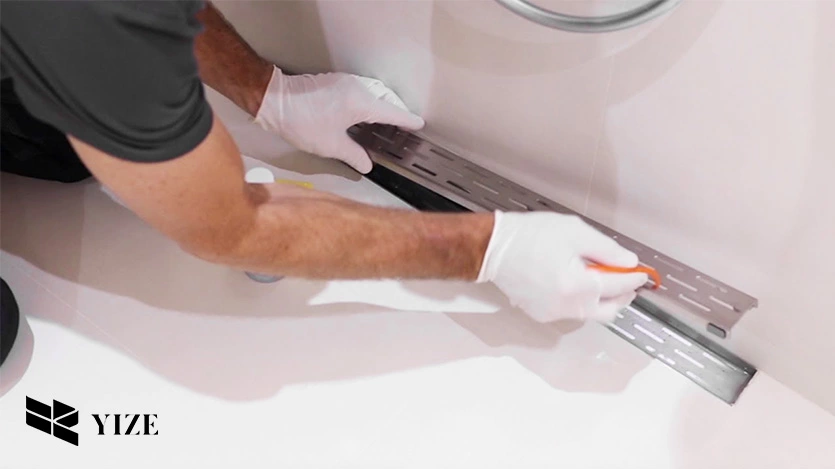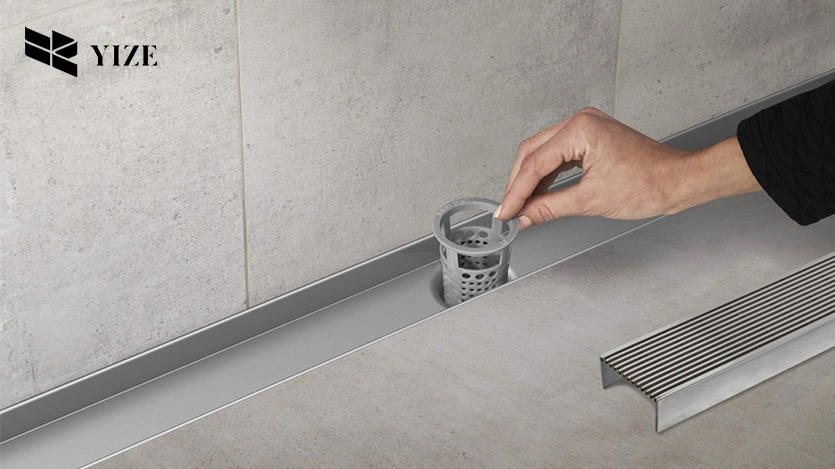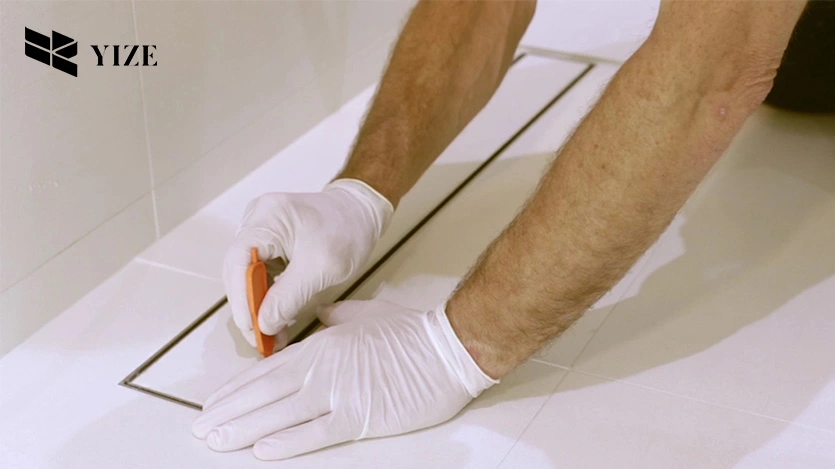
I. Introduction
A clogged shower drain causes inconvenience and discomfort. It changes your schedule, makes your shower smelly, and can also lead to the accumulation of water on the floor of the shower. But you don’t have to spend a lot of money on sophisticated equipment or hire specialized service providers to solve this problem. For this, you do not have to look for expensive chemicals as you can unclog and clean your shower drain with common materials. Cleaning your shower drain can be done easily with everyday materials. Now, let’s discuss practical steps on ‘how to clean shower drains.’
II. Why Keeping Your Shower Drain Clean Matters?
Keeping your shower drain clean is more than just preventing clogs. It’s also about making your bathroom a hygienic environment and avoiding expensive plumbing repairs. Leaving your drains alone allows hair, soap scum and other debris to build up, causing clogs and foul odors.
Having a clean shower drain guarantees better flow of water, reduces the chances of bacteria accumulation, and ensures your shower is trouble-free. Furthermore, regular cleaning of your drain is often more cost-effective than treating a major clog.
III. How Often Should You Clean Your Shower Drain?
Regular cleaning of your shower drain can save you from major plumbing trouble. Here’s what you need to know:
- Weekly: After a few showers, remove visible hair and debris.
- Monthly: If you want a deep clean, use a cleaning method such as baking soda and vinegar.
- Signs You Need Cleaning: If there is slow draining, gurgling sounds, or unpleasant odors, then clean your drain.
Regular cleaning will allow you to add more years to your plumbing and even prevent future clogs.
IV. How to Unclog and Clean Your Shower Drain with Everyday Materials?

To clean your drain without the use of harsh chemicals, you can use common household items. Here are the steps:
1. Remove Visible Debris
Before you use any cleaning solutions, try to remove the hair and debris that you can see on the outer part of the drain. This step is straightforward:
- To protect your hands, wear gloves.
- You can use tweezers or a plastic hook to pull that tangled hair and gunk out.
- To avoid putting the debris back into the plumbing, dispose of it in a trash bag.
2. Baking Soda and Vinegar Method
This classic combination is both effective and safe for your pipes:
- Pour ½ cup baking soda directly into the drain.
- Fill a spray bottle and add ½ cup of white vinegar.
- Place a plug or cover the drain while the clog breaks down within 10-15 minutes.
- Run hot water in the drain to clear away the loosened debris.
3. Flush with Hot Water
Hot water is a simple yet powerful way to clear minor clogs:
- Boil a pot of water.
- Directly, in two to three turns, pour the boiling water down the drain.
- Let a minute pass between each pour to let heat dissolve soap, scum, and grease.
V. Additional Everyday Methods to Unclog Your Drain
1. Boiling Water Technique
Hot water can work better on minor clogs:
- Boil a kettle of water.
- Add water slowly to drain in small increments.
- If necessary, repeat the process, making sure the water really gets deep into the pipes.
2. Using a Plunger
A sink plunger can be very effective in dislodging stubborn clogs:
- Put the plunger upside down onto the drain opening.
- Fill the shower area until it’s full of water to cover the cup of the plunger.
- Several times, push down and pull up quickly to create suction.
Now check out if the water can drain properly.
3. Salt and Baking Soda Mixture
This method is great for tackling tougher blockages:
- Combine ½ cup of salt with ½ cup of baking soda.
- Then, pour the mixture down your drain and let it sit for 30 minutes.
- The best way to deal with a clog is to flush it with hot water.
VI. Safety Tips for Cleaning Your Shower Drain
When cleaning your shower drain, safety should always come first:
- Wear gloves for debris and cleaning solutions and for protection of hands.
- Do not burn yourself; boiling water is hot.
- Do not poke sharp objects into the drain, which can destroy your plumbing.
VII. Tips to Prevent Future Clogs

Preventive measures can save you time and effort in the long run:
- Use a Drain Cover: Hair and debris get trapped in a drain cover, stopping it from going down the pipes.
- Clean Weekly: If clogs form, remove visible debris regularly to stop them before they start.
- Avoid Greasy Products: Don’t wash oily substances down the drain.
- Flush Monthly: To keep your drain clean and fresh, use baking soda and vinegar monthly.
VIII. Conclusion
Any stress-free shower experience requires a clean and functional shower drain. With common items such as baking soda, vinegar, and hot water, you can unclog and keep your drain working without having to pay a lot. Keeping your drain clean and taking preventive action will keep it working efficiently and odor free, giving you a clean drain bathroom routine.
Frequently Asked Questions (FAQs)
1. What causes a shower drain to clog?
A shower drain typically clogs due to a buildup of hair, soap scum, and skin cells, which naturally accumulate over time and eventually stick to the pipe walls, creating a blockage that restricts water flow; this is especially prevalent for people with long hair as the hair can easily get caught in the drain.
2. How often should I clean my shower drain?
Most experts recommend cleaning your shower drain once a month to prevent hair and soap scum buildup, but if you have multiple people with long hair using the shower regularly, you may need to clean it every couple of weeks.Key points to remember:
Frequency depends on usage: Households with frequent shower use should clean more often.
Signs of a dirty drain: Slow draining water, bad smells, visible hair or dirt, mold around the drain cover.
Cleaning method: Use a drain snake or a combination of baking soda and vinegar to remove clogs and debris.
3. Is baking soda and vinegar safe for all drains?
No, while baking soda and vinegar are generally considered safe household products, using them together to clean drains is not recommended for all drains as the chemical reaction between the two can potentially damage older or metal pipes over time due to the abrasive nature of baking soda and the acidic properties of vinegar; it’s best to consult a YADRAIN for stubborn clogs or if you have concerns about your plumbing system.
4. Can I use chemical drain cleaners?
Chemical cleaners work but, over time, can damage your pipes. Choose natural methods when you can.
5. What should I do if my drain remains clogged after cleaning?
At times, if the basic methods don’t work, it is time to call upon professional plumbing to fix it.

